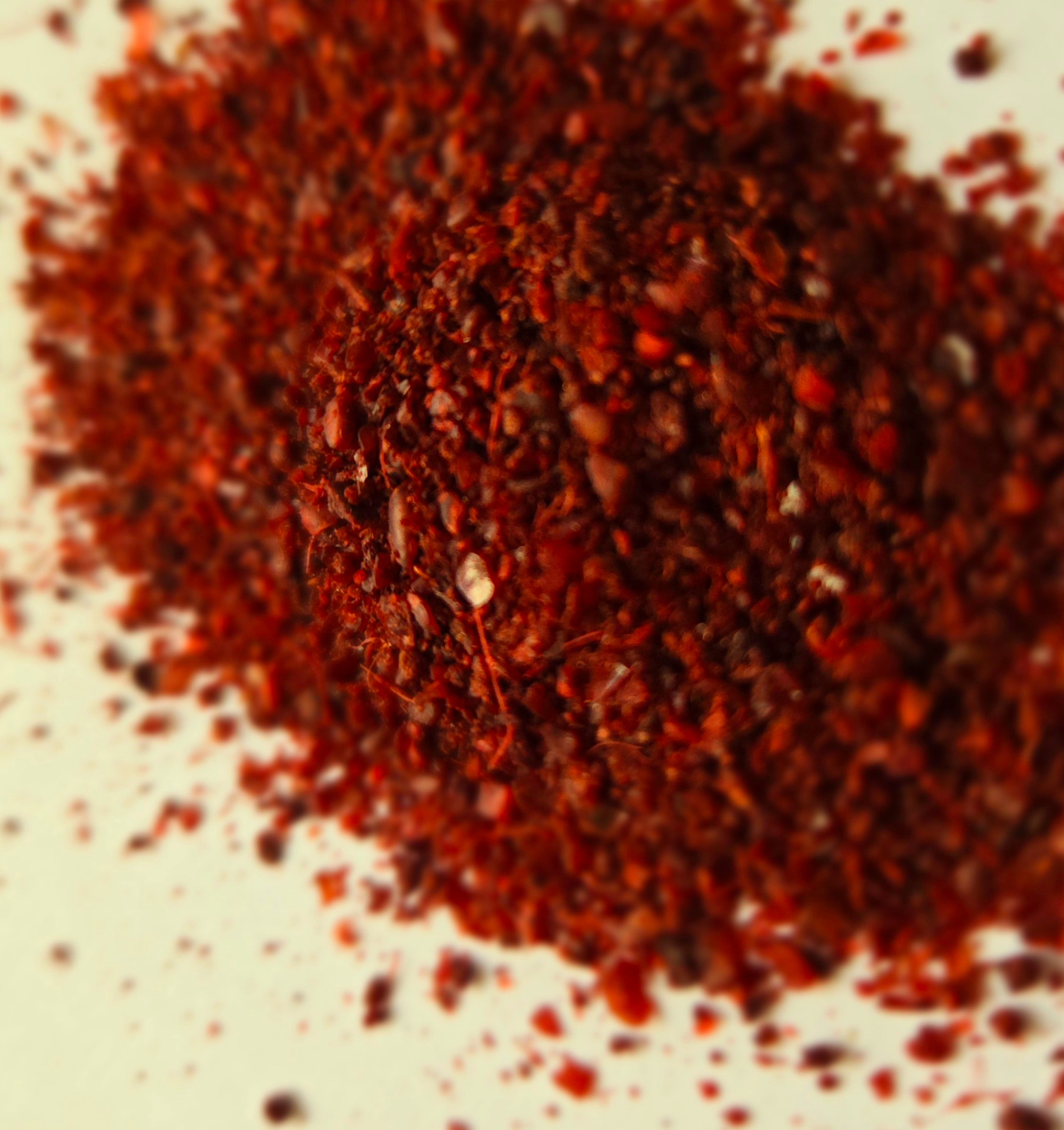Sumac

Medicinal Benefits of Sumac
Sumac (Rhus coriaria) is a spice and medicinal plant with a wide range of health benefits, supported by both traditional use and modern research.
Key Medicinal Benefits:
-
Potent Antioxidant Activity
Sumac is rich in antioxidants, including polyphenols and flavonoids such as gallic acid and quercetin, which help combat oxidative stress and protect cells from free radical damage. -
Anti-Inflammatory and Antimicrobial Effects
The plant exhibits strong anti-inflammatory properties, helping to alleviate symptoms of arthritis and other inflammatory conditions. Its antimicrobial action has been shown to be effective even against antibiotic-resistant bacteria. -
Blood Sugar Regulation
Sumac may help lower blood sugar and improve insulin sensitivity, making it potentially beneficial for people with diabetes or those at risk. -
Cardioprotective and Cholesterol-Lowering
Studies indicate sumac can reduce blood cholesterol levels, support heart health, and act as a vasodilator to protect the cardiovascular system. -
Pain Relief and Muscle Recovery
Clinical studies have found that sumac can alleviate muscle pain, especially after exercise, likely due to its antioxidant and anti-inflammatory properties. -
Digestive and Gastrointestinal Support
Traditionally, sumac has been used to treat diarrhoea, digestive distress, and stimulate enzyme production for improved nutrient absorption. -
Potential Anticancer Properties
Early research suggests sumac compounds may inhibit cancer cell growth and promote apoptosis (programmed cell death) in certain cancer types. -
Other Traditional Uses
Sumac has been used for liver disease, urinary issues, ulcers, skin infections, and as a natural diuretic. It is also believed to help with menstrual pain and promote skin health due to its vitamin and mineral content.
Nutritional Profile:
-
Rich in vitamins C, A, and E, and minerals such as potassium, calcium, magnesium, and iron.
-
Contains dietary fibre, supporting digestive health.
Safety:
-
Sumac is generally considered safe for human consumption, with little to no toxicity reported in studies.
Sumac's wide-ranging medicinal benefits make it a valuable addition to both culinary and therapeutic practices, with ongoing research continuing to uncover its full potential.
Citations:
- https://pmc.ncbi.nlm.nih.gov/articles/PMC7828031/
- https://www.healthline.com/nutrition/sumac-benefits-uses-and-forms
- https://www.realsimple.com/food-recipes/ingredients-guide/sumac
- https://journals.lww.com/nutritiontodayonline/fulltext/2023/03000/sumac__potential_health_benefits.8.aspx
- https://thegoodprep.com/sumac-health-benefits-and-history/
- https://www.sciencedirect.com/science/article/pii/S2772566924000028
- https://viola--flower.com/en/blog/Benefits-of-sumac-in-prophetic-medicine/a-1858325926
- https://draxe.com/nutrition/sumac-spice/
- https://www.openaccessgovernment.org/research-sumac-diets-antioxidant-health-benefits/161250/